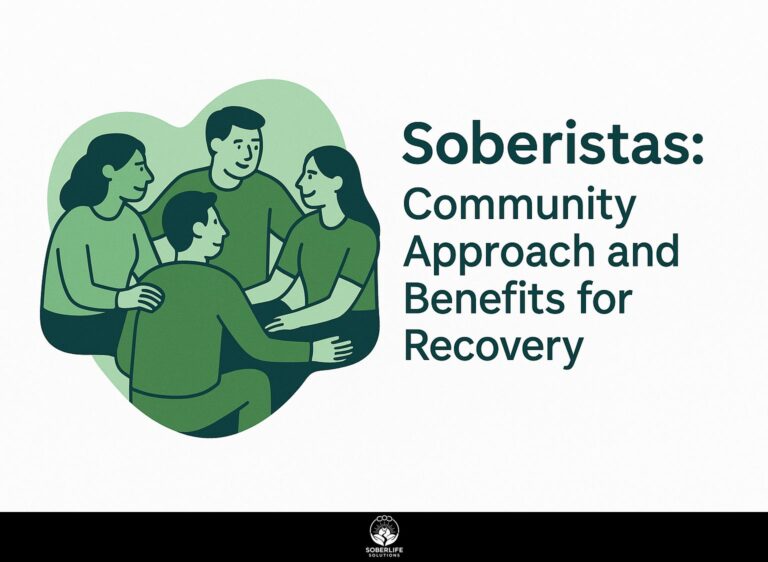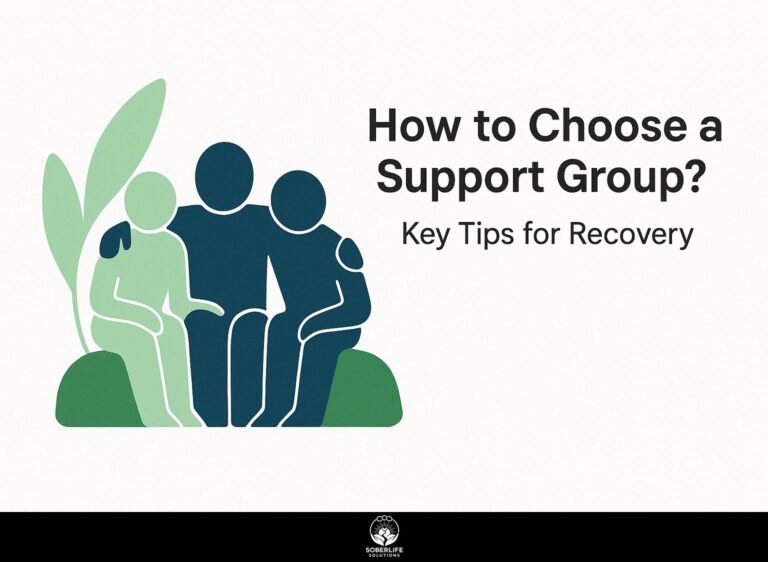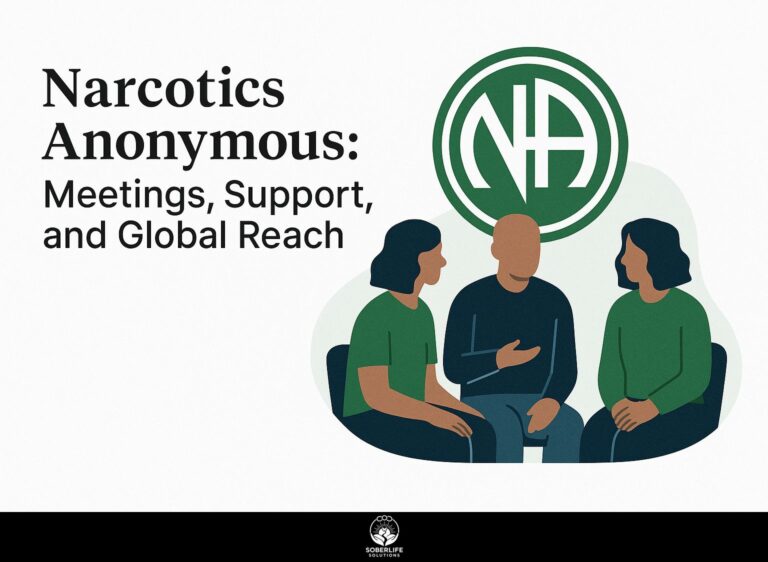How to Prepare for Support Groups: Essential Tips for Participants
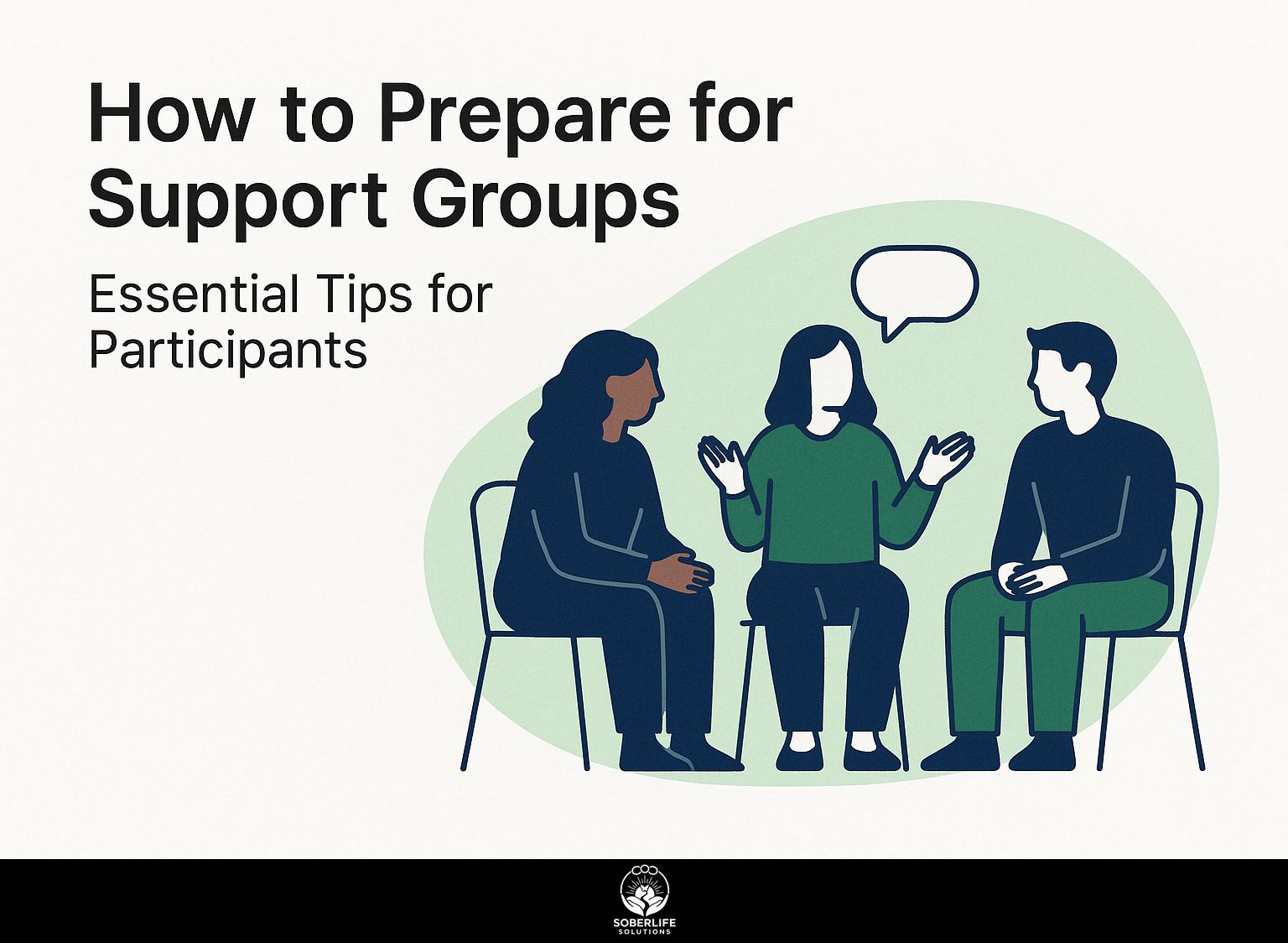
Support groups offer crucial emotional help for people dealing with serious health issues such as cancer or heart disease. They provide practical methods for managing these challenges. Whether you’re meeting with a healthcare professional or looking for community support, getting ready for these meetings is important for your mental health. In this article, we’ll give you important advice on preparing, helping you get the most out of your support group and build strong connections with others in similar situations.
Key Takeaways:
Understanding the Purpose
Different support groups serve distinct purposes, from providing emotional relief to reducing the stigma surrounding mental health issues.
For example, Alcoholics Anonymous (AA) offers a safe environment for individuals struggling with substance use to share experiences and coping strategies.
In the same way, the National Institutes of Health (NIH) organizes discussions about long-term illnesses, offering helpful resources and contacts for people facing similar health issues.
These groups build a sense of community and provide a place for people to talk about their feelings, ask for advice, and find support in their recovery. According to the Mayo Clinic, support groups can significantly enhance personal connections and provide much-needed help to individuals seeking recovery. See also: Peer Support Groups for Young Adults: Tailored Support for more targeted support options.
Types of Support Groups
Support groups can be categorized into peer-led, professional-led, in-person meetings, and online groups, each offering unique advantages.
-
Peer-led groups, such as those offered by the Mental Health Association, provide a comfortable environment where members share personal experiences and support one another. This approach, which ResearchGate explores as having distinct therapeutic benefits, is particularly beneficial for fostering empathy and mutual support. If interested, you might find more tailored options in peer support groups designed for young adults.
-
Groups run by professionals include licensed therapists who lead talks and provide ways to manage, focusing on people dealing with serious mental health issues.
-
In-person meetings help build community through face-to-face interactions, while online groups make it easier for people who can’t travel to participate.
-
Different formats cater to different emotional support needs, allowing each person to find what suits them best.
Preparing Emotionally
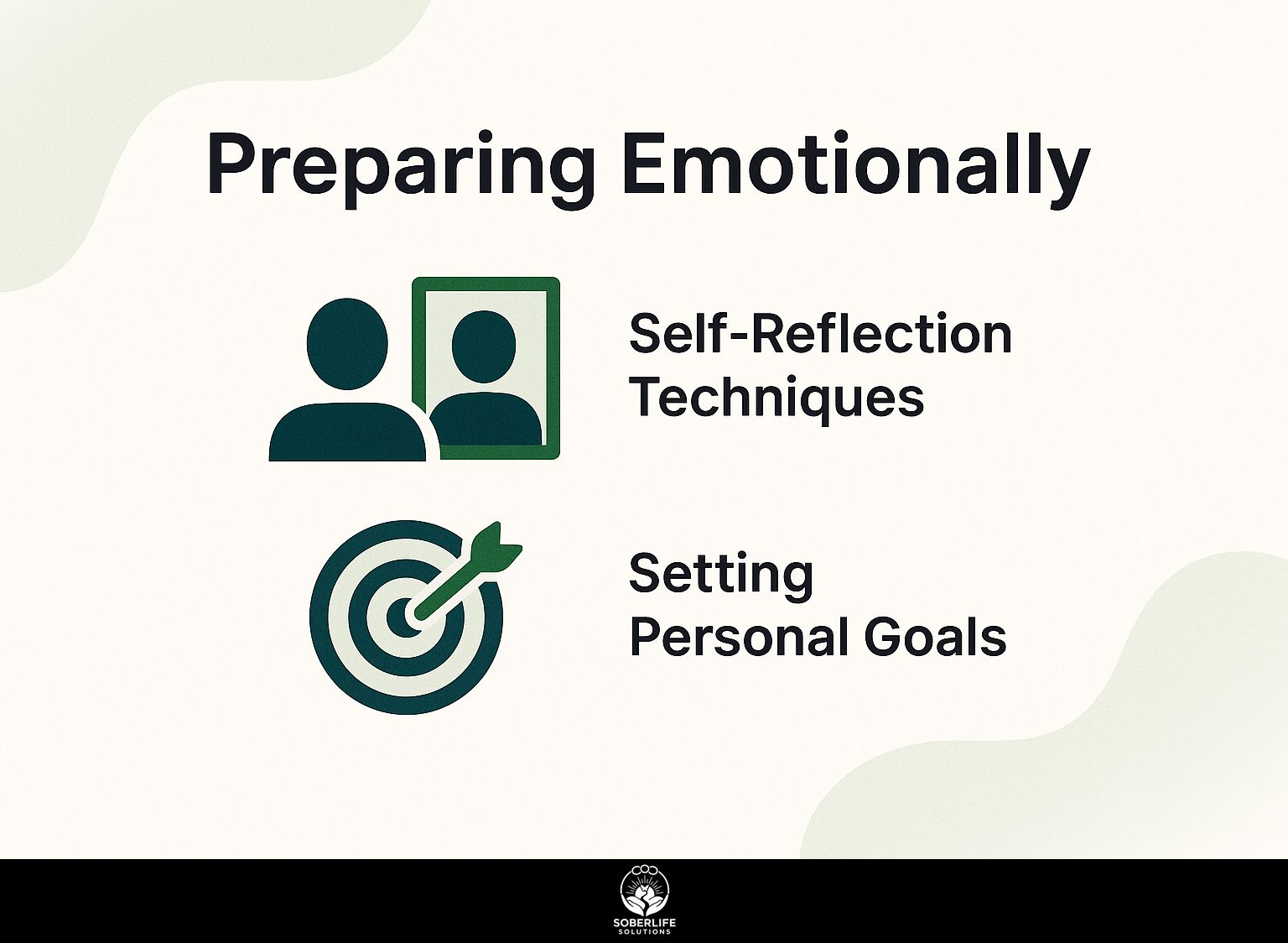
Getting ready emotionally for a support group is important. It helps people attend the meeting with a clear mind and set intentions.
Self-Reflection Techniques
Practicing self-reflection techniques like journaling or meditation can help people understand themselves better and manage their emotions before joining a support group.
To start journaling, set aside 10-15 minutes each day. Consider questions like “What am I grateful for today?” or “What problems did I face, and how did I manage them?” These prompts can reveal trends and support personal growth. Insights into how journaling affects mental well-being are backed by research discussed in an article by Medium.
To learn meditation, try using apps like Headspace or Insight Timer. These apps provide sessions with instructions lasting from 5 to 30 minutes. Consistent reflection on your thoughts and emotions can significantly improve your confidence and connection with others in a group setting.
Setting Personal Goals
Deciding what you want to achieve from a support group helps you stay focused and improves your involvement.
To set specific SMART goals, start by clearly stating your objectives or what you plan to learn. For example, you might want to tell your story about dealing with anxiety.
Next, make it Measurable by deciding on a concrete outcome, such as discussing this topic in at least two sessions.
Make sure your goal is realistic by thinking about how comfortable you are with sharing in a group. Set goals that match your personal development, such as learning ways to manage stress.
Establish a Time-bound aspect, like committing to your goal over the course of four sessions.
Gathering Necessary Information
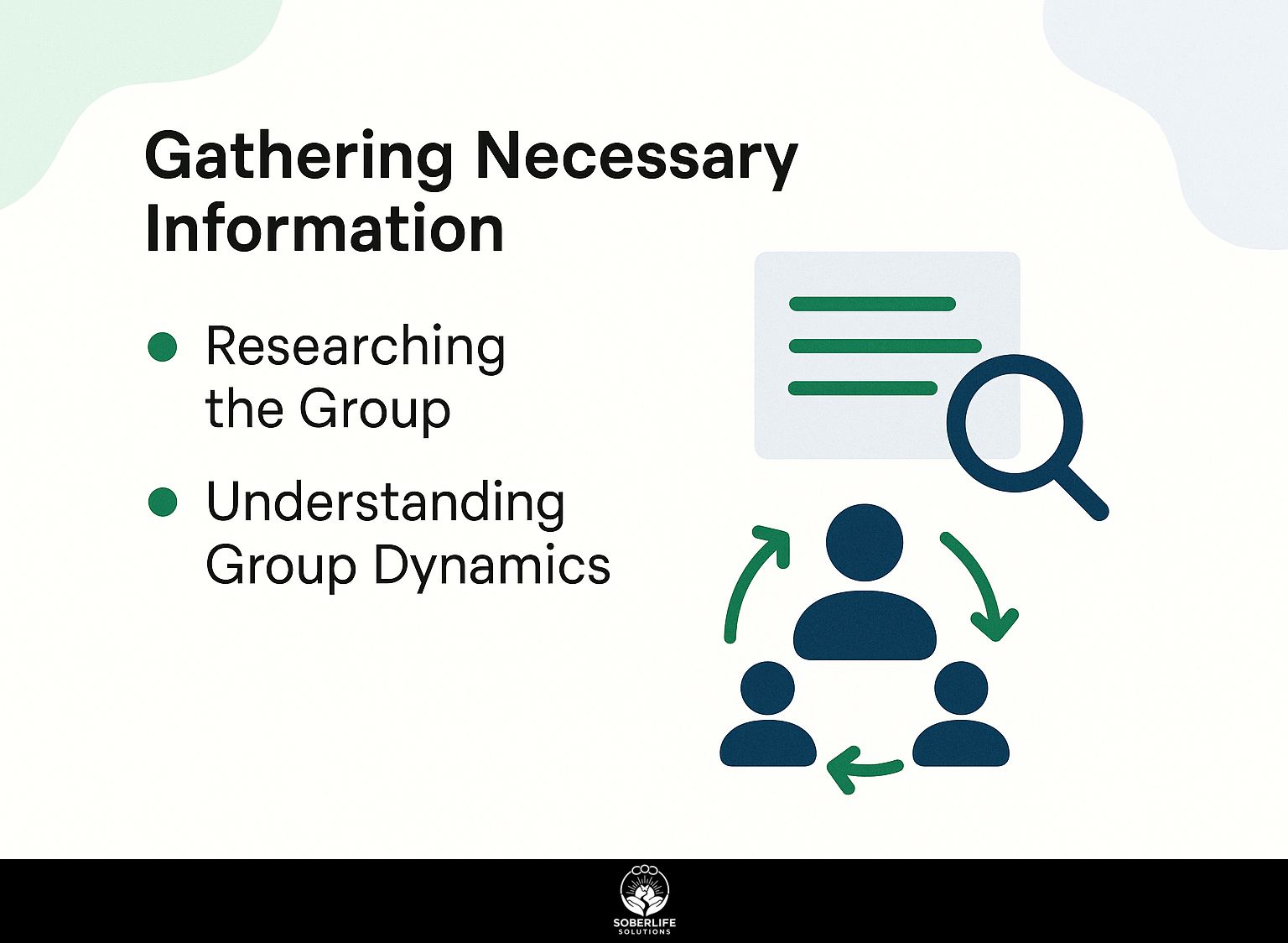
Getting important details about the support group and how it works can greatly improve your ease and ability to contribute as a member.
Researching the Group
Looking into the particular support group can help you understand how well it works, what participants have experienced, and how it matches your mental health requirements.
- Start by visiting reputable organizations’ websites, such as the American Cancer Society or NAMI, where you’ll find directories of support groups.
- Check testimonials to understand what past participants think; these can give useful opinions on how the group works and its quality.
- Peruse social media platforms like Facebook or Instagram, where many groups host pages or communities. Talking with current members can show how the group works and if it suits you.
Understanding Group Dynamics
Knowing how a support group works, including the roles of participants and leaders, is important for meaningful involvement.
Leaders steer conversations and make sure everyone can share their thoughts, creating a friendly atmosphere.
Guest speakers can share their knowledge and motivate group members; they often increase participation.
To handle communication problems, set rules for respect and privacy. Encourage active listening by allowing pauses for reflection before responding.
Regular check-ins can help identify any unresolved issues or tensions, ensuring that members feel supported. Supporting these interactions creates better relationships between participants.
Practical Preparations
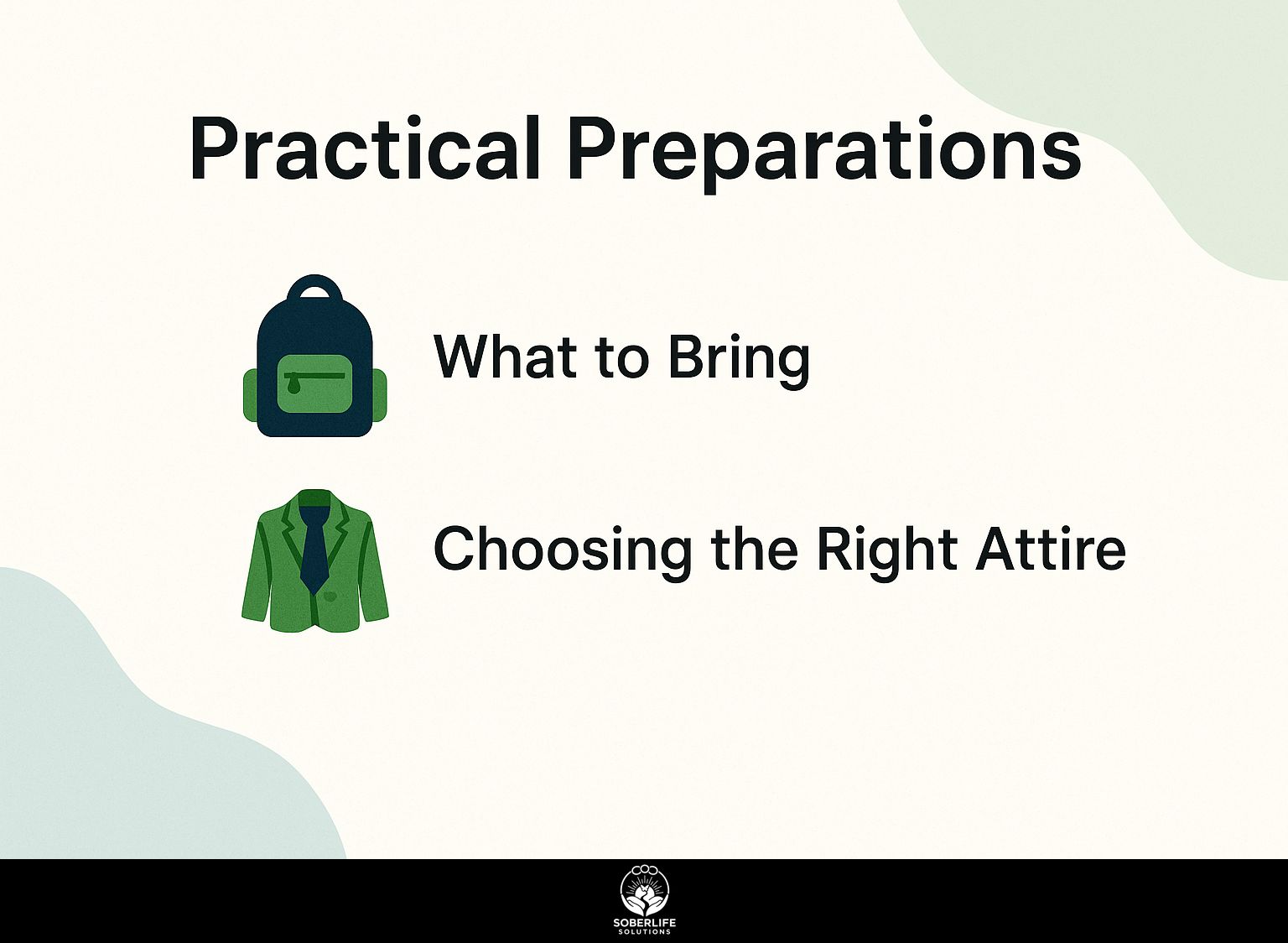
Getting ready for a support group, like knowing what items to take and what clothes to wear, can reduce starting nerves and create a friendly environment.
What to Bring
Bringing helpful items, like a notebook for jotting down notes or personal thoughts, can improve your support group experience and encourage participation.
Along with your notebook, consider bringing a water bottle to stay hydrated and snacks to maintain energy.
Personal coping tools, like fidget spinners or stress balls, can help manage anxiety during discussions. A comfortable cushion or blanket may also make a long session more enjoyable.
Keep in mind that being ready lets you pay attention to what you’re doing and helps create a helpful setting. Discussing these subjects openly helps build trust, making it easier to relate to others and share what you know.
Choosing the Right Attire
Choosing comfortable attire for a support group can help alleviate anxiety and allow you to focus on the discussions and connections being made.
Consider the setting of the group when selecting your clothing. For casual settings, opt for relaxed fabrics like cotton or jersey, such as a soft t-shirt paired with loose-fitting jeans.
In more formal environments, aim for business casual attire-think chinos and a collared shirt, or a simple blouse. Regardless of the style, prioritize comfort; avoid tight clothing or shoes that restrict movement.
Layering can also be beneficial to adjust between varying temperatures, ensuring you feel at ease throughout the session.
Engaging with the Group
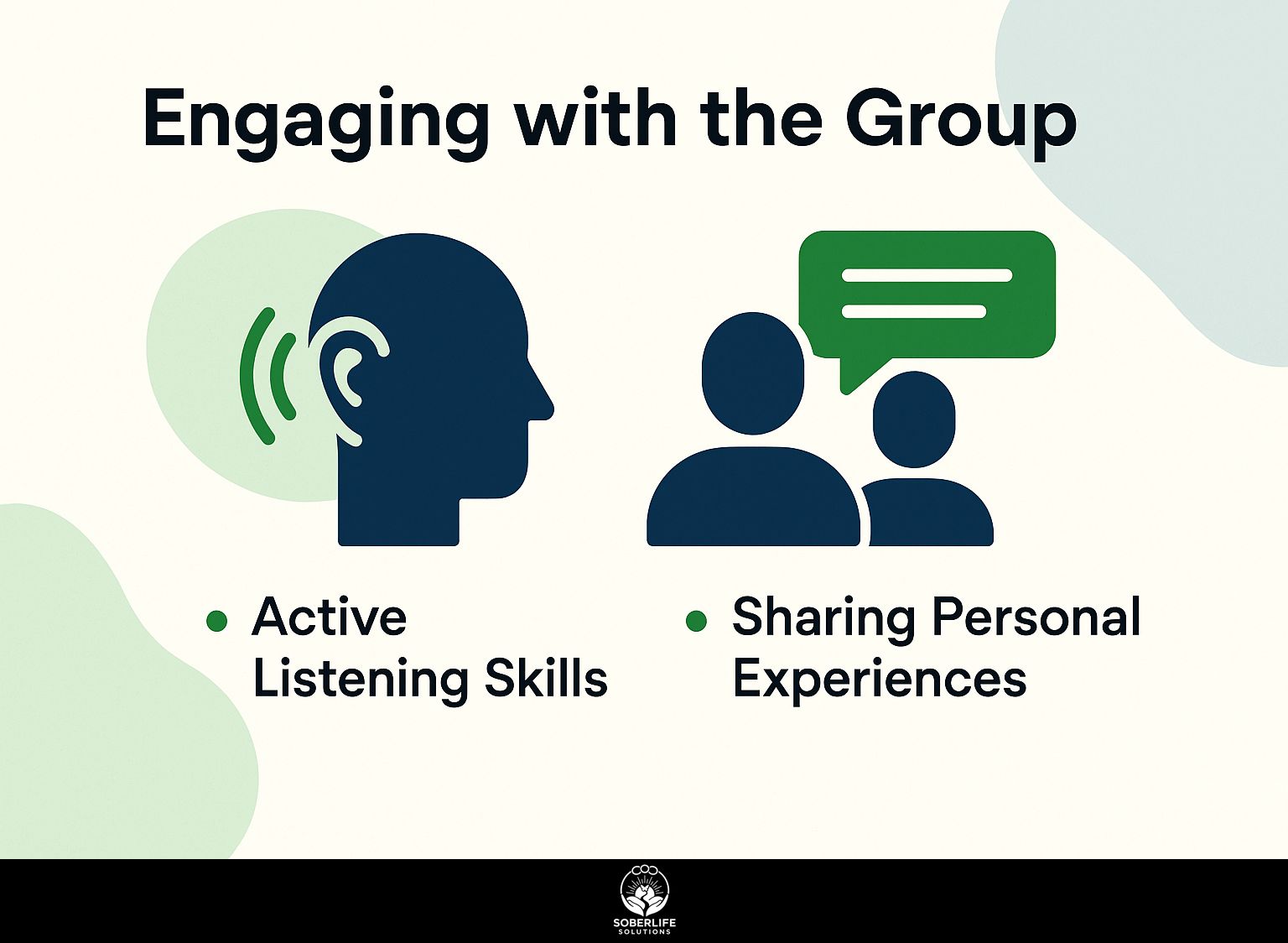
To interact well with a support group, focus on truly listening and be willing to share your own experiences to build connections. Understanding the benefits and activities of peer support groups can further enhance your engagement.
Active Listening Skills
Improving how well you listen can help you relate to others in a support group and show that their experiences matter.
- Begin by summarizing; after a person speaks, repeat their main ideas to show you understand them. This shows you were attentive and invites more conversation.
- Use tools like feedback cards to collect opinions and emotions, encouraging quieter members to contribute. Non-verbal cues such as maintaining eye contact and nodding can significantly convey empathy.
- Joining in these activities often builds a friendly environment where everyone feels heard and valued.
Sharing Personal Experiences
Talking about personal experiences in a support group can ease emotional stress and give participants a sense of control.
To initiate sharing respectfully, consider starting with open-ended questions like, ‘What has been on your mind lately?’ This encourages others to share at their own pace.
Use active listening to show you care by recognizing their emotions with sayings like, ‘That sounds really hard.’ For instance, when someone talks about a struggle, it can help others relate and feel less isolated, building a mutual sense of connection.
Research published in the Journal of Clinical Psychology showed that telling stories in groups greatly improves the well-being and unity of group members.
Post-Group Reflection
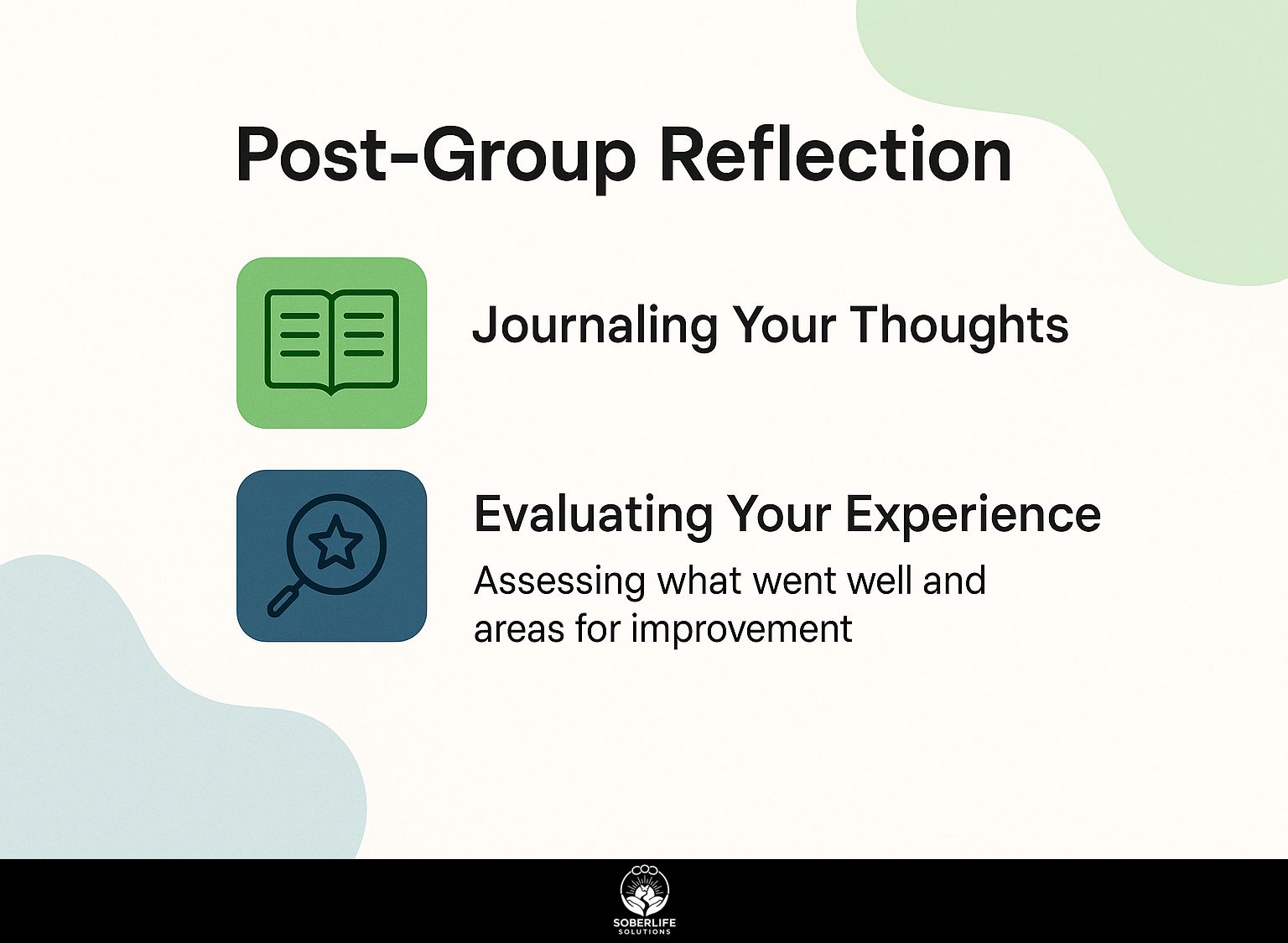
Reflecting on what you learned after attending a support group can solidify your knowledge and prepare you for upcoming meetings. One effective method to enhance your recovery process is by developing essential life skills that aid in addiction recovery.
Journaling Your Thoughts
Journaling after group sessions can help process emotions and reinforce coping strategies learned in support settings.
Consider asking questions like, “What feelings did I notice during our discussion today?” or “How can I apply one idea from our meeting to my daily life?”
Tools like Penzu or Day One offer user-friendly digital platforms for keeping a journal. You can add images, tags, and audio notes, which makes reviewing more engaging.
Allocate just five to ten minutes after each session to write your thoughts. This straightforward routine can significantly improve your grasp of emotions and commitment to personal growth.
Evaluating Your Experience
Looking at your time in a support group can help you see what was helpful for you and how to be more involved in later meetings.
To evaluate how well things are working, think about these clear indicators: how comfortable you feel during conversations, how relevant the shared content is to your problems, and how happy you are with the way the group interacts.
For example, after a meeting, think about whether you felt understood and if the subjects matched what you need. Writing down how you feel before and after meetings in a basic journal can help you understand your emotions.
Getting feedback from others in the group can give you different viewpoints, helping you see how the group affects you.
Frequently Asked Questions
What is a support group and why should I join one?
A support group is a group of individuals who come together to share experiences, information, and emotional support related to a common issue or concern. Being part of a support group can give people a feeling of belonging, recognition, and awareness. This can be very helpful for those facing difficult times.
How can I find a support group that is right for me?
There are many ways to find a support group that meets your needs. You can ask your healthcare provider for recommendations, search online, or contact local organizations or community centers. It’s important to find a group that focuses on the specific issue you are dealing with and that you feel comfortable being a part of.
What should I do to prepare for my first support group meeting?
Before attending your first meeting, take some time to think about what you hope to gain from the experience. It can also be helpful to write down any questions or concerns you have and bring them with you. Try to get there a few minutes early to say hello to the group leader and others in the group.
What can I expect at a support group meeting?
The structure of support group meetings can vary, but typically you can expect to have time for introductions, discussions, and possibly activities or exercises. You will also have the opportunity to share your own experiences and ask questions. It’s important to listen actively and respectfully to others and to participate in discussions when you feel comfortable.
What should I do if I feel uncomfortable or overwhelmed during a support group meeting?
It’s normal to feel a range of emotions during a support group meeting, and it’s important to remember that you can take a break or leave the meeting if you need to. If you’re feeling stressed, try breathing slowly or looking at something peaceful. You can also speak to the group facilitator or a trusted participant for support.
How can I make the most out of my support group experience?
To get the most out of your support group experience, it’s important to actively participate by sharing your own experiences and listening to others. It can also be helpful to take notes during meetings, continue discussions with other group members outside of meetings, and practice any skills or strategies discussed in the group in your daily life.



